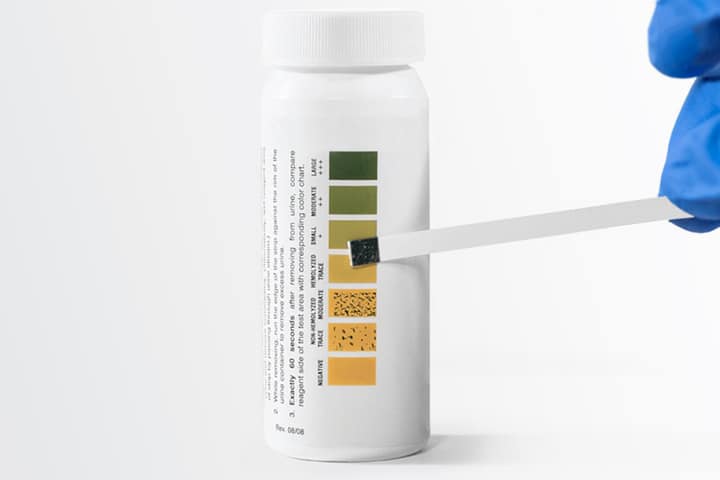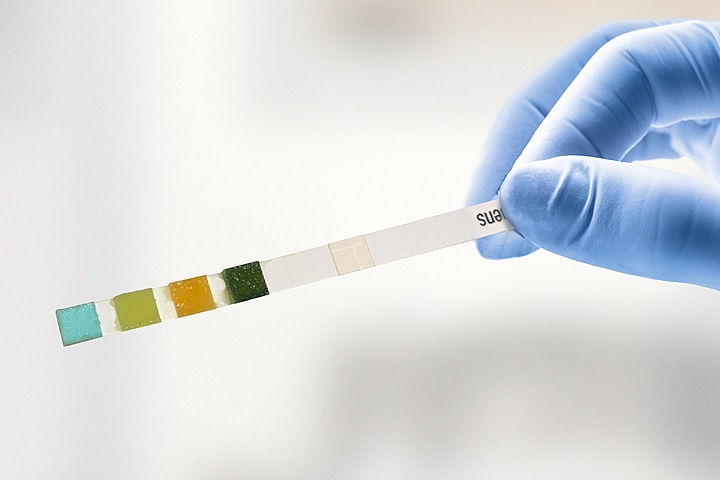
Everyone who handles cyclophosphamide will know that there is a significant risk of inducing severe haemorrhagic cystitis in dogs with its use.
In the worst cases, this can be so severe that it leads to euthanasia. This can be all the more devastating in a patient whose cancer is in remission and expected to remain so for months or years more. There are a couple of strategies that can be used to reduce the risk of this quality of life-altering complication.
Use of a loop diuretic: we recommend prescribing furosemide with the cyclophosphamide. For once daily dosing, give 1mg/kg furosemide at the same time. For intermittent dosing, give 1-2mg/kg three times at twelve-hour intervals starting at the same time as the cyclophosphamide dose.
Increase water turnover: advise the owner to offer ‘tasty water’. Consider options like meaty gravy or water from boiling chicken if the owner cooks for the dog.
Teach the owner to use urine dipsticks: this is the game changer. For owners whose dogs are receiving long-term regular cyclophosphamide treatment, we provide them with a pot of urine dipsticks and teach them how to perform their own urine tests. With twice-weekly testing, we consistently find that owners are aware of cystitis developing before the patient exhibits any clinical signs. And, in these days of smartphone technology, if an owner is unsure, we can assess a dipstick result by email in a twinkle of an eye.

Finally, we are absolutely sure that we see more cases of cyclophosphamide-induced cystitis in November, December and January. These are the months when humans tend to hibernate a little and when dogs are more disinclined to go out for a late night wee due to the darkness and inclement weather. And this means that urine and the metabolites it contains dwell longer in the bladder and therefore have longer to exert any potential toxic effect. So a definite focus on the importance of bladder emptying in the winter months is of enormous value in reducing the risk and severity of haemorrhagic cystitis in dogs.
Case Advice or Arranging a Referral
If you are a veterinary professional and would like to discuss a case with one of our team, or require pre-referral advice about a patient, please call 01883 741449. Alternatively, to refer a case, please use the online referral form
About The Discipline
Oncology

Need case advice or have any questions?
If you have any questions or would like advice on a case please call our dedicated vet line on 01883 741449 and ask to speak to one of our Oncology team.
Advice is freely available, even if the case cannot be referred.
Oncology Team
Our Oncology Team offer a caring, multi-disciplinary approach to all medical and surgical conditions.